
Find Help
More Items From Ergsy search
-

How is fungal meningitis treated?
Relevance: 100%
-

What is meningitis?
Relevance: 66%
-
Is meningitis contagious?
Relevance: 65%
-
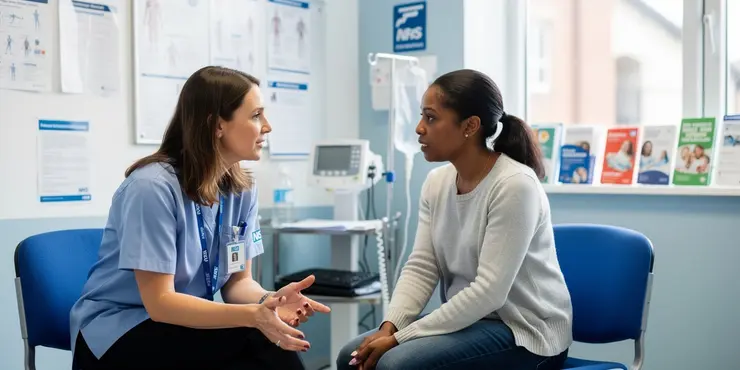
What are the main types of meningitis?
Relevance: 65%
-
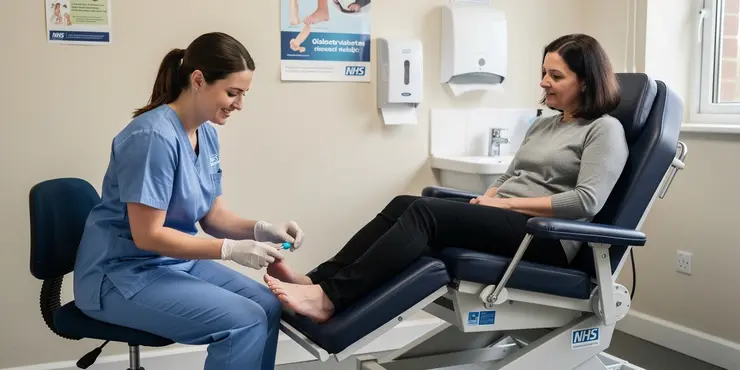
Podiatrist Fungal feet - fungal infection of skin and nails and how to prevent fungal infection in feet
Relevance: 62%
-

What is the treatment for bacterial meningitis?
Relevance: 61%
-

How is meningitis diagnosed?
Relevance: 53%
-
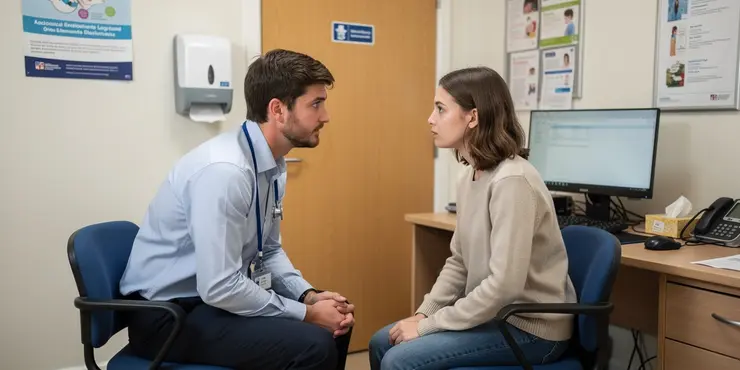
Can meningitis cause long-term complications?
Relevance: 53%
-

What is non-infectious meningitis?
Relevance: 52%
-
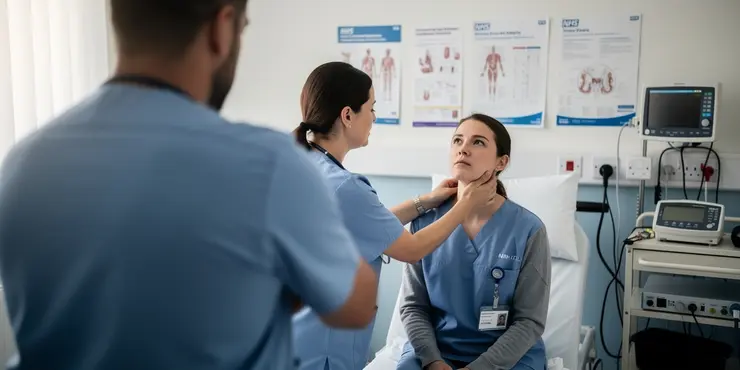
What are common symptoms of meningitis?
Relevance: 51%
-

Why is meningitis a medical emergency?
Relevance: 50%
-

Who should get a meningitis vaccination?
Relevance: 48%
-

Is vaccination recommended for seniors against meningitis?
Relevance: 47%
-
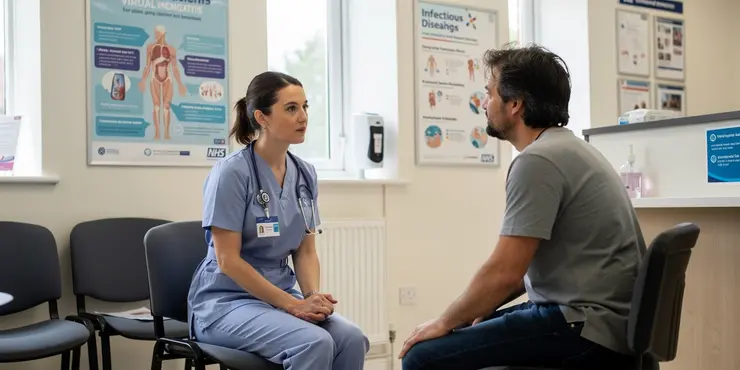
What causes viral meningitis?
Relevance: 46%
-

Are there vaccines for meningitis?
Relevance: 46%
-

What causes bacterial meningitis?
Relevance: 45%
-
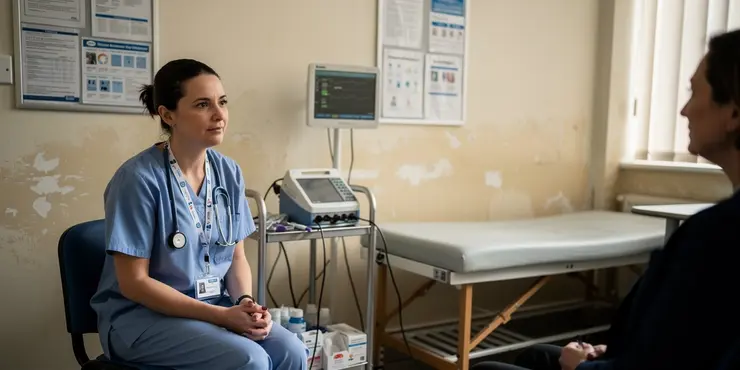
What is the prognosis for viral meningitis?
Relevance: 45%
-

What are the signs of meningitis in infants?
Relevance: 45%
-

Are there any specific groups that should prioritize meningitis vaccination?
Relevance: 45%
-

Can meningitis be prevented?
Relevance: 45%
-

Should health care workers get the meningitis vaccine?
Relevance: 45%
-
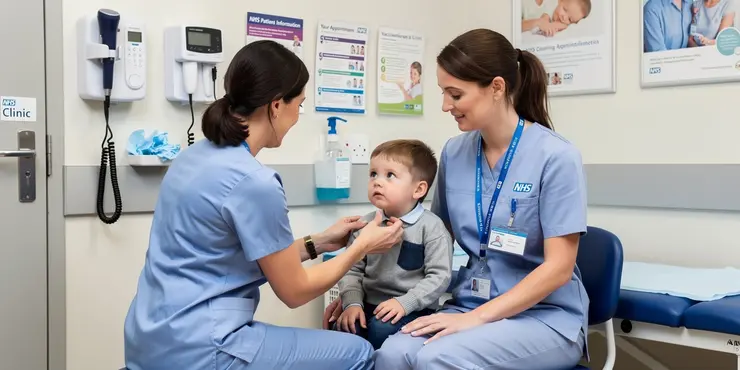
How serious is bacterial meningitis?
Relevance: 45%
-
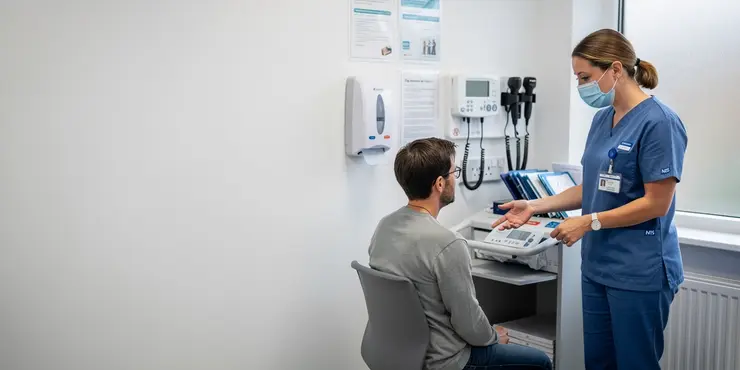
How is viral meningitis spread?
Relevance: 42%
-

Who is at higher risk of contracting meningitis?
Relevance: 42%
-

Are adults over 25 recommended for meningitis vaccination?
Relevance: 40%
-
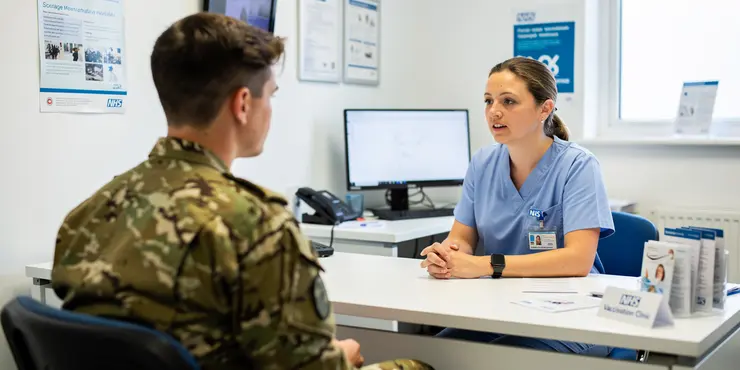
Is meningitis vaccination required for military recruits?
Relevance: 40%
-

Does the CDC recommend meningitis vaccines for adolescents?
Relevance: 39%
-
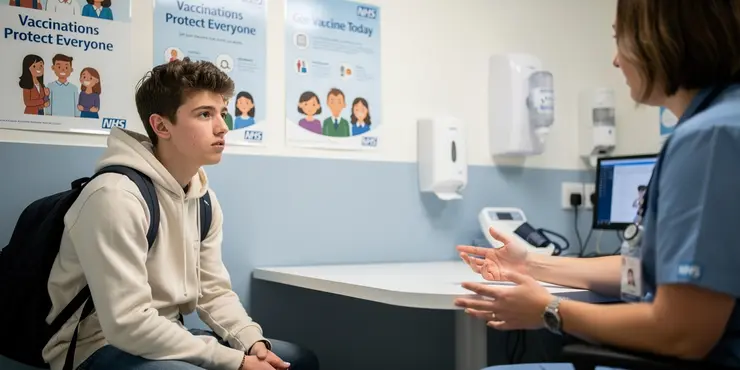
Should college students get the meningitis vaccine?
Relevance: 39%
-

Do international students need the meningitis vaccine?
Relevance: 38%
-
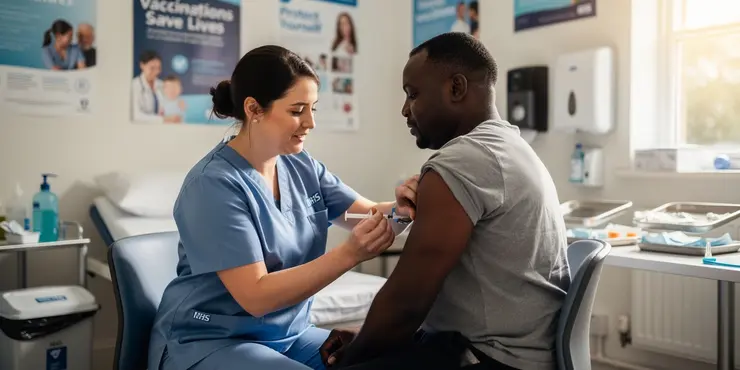
What are the guidelines for meningitis vaccination for HIV-infected individuals?
Relevance: 37%
-
What are the meningitis vaccination recommendations for travelers to Hajj or Umrah?
Relevance: 37%
-

Do people who have had meningitis in the past need to be vaccinated?
Relevance: 37%
-
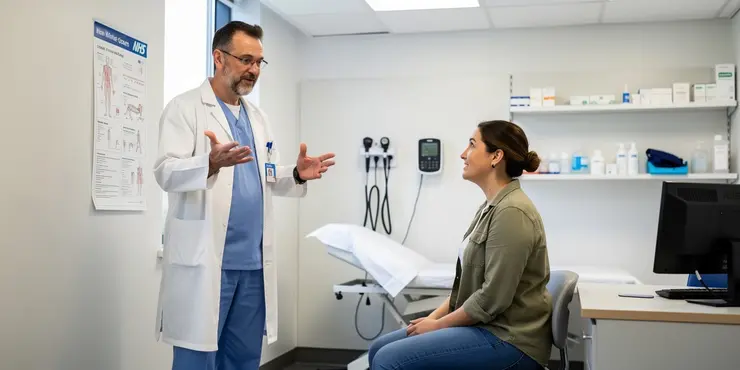
Are there treatments for West Nile Virus?
Relevance: 24%
-

Having chemotherapy and other treatments in the Day Treatment Unit
Relevance: 21%
-
Is there a treatment for measles?
Relevance: 21%
-

Is there a treatment for measles?
Relevance: 20%
-

Are chiropractic treatments safe?
Relevance: 20%
-

Is Botox treatment expensive?
Relevance: 20%
-

Are chiropractic treatments painful?
Relevance: 20%
-

What is the treatment for appendicitis?
Relevance: 20%
Understanding Fungal Meningitis
Fungal meningitis is a rare but serious infection of the membranes covering the brain and spinal cord. It is caused by fungi such as Cryptococcus, Histoplasma, Blastomyces, and Candida. These fungi are commonly found in soil, decaying wood, and bird droppings. Individuals with weakened immune systems are more susceptible to fungal meningitis, though it can occur in otherwise healthy individuals as well.
Diagnosis of Fungal Meningitis
Diagnosis of fungal meningitis involves several tests. Initially, a doctor will perform a thorough medical history review and physical examination. A key diagnostic tool is a lumbar puncture, where a sample of cerebrospinal fluid (CSF) is collected and analysed. Laboratory tests such as CSF culture, blood tests, and imaging studies like MRI or CT scans assist in confirming the infection and identifying the fungal species responsible. Early and accurate diagnosis is crucial for effective treatment.
Treatment Options
Treatment for fungal meningitis is specific and requires antifungal medications rather than antibiotics, which are ineffective against fungal infections. The standard treatment usually involves a two-step process: induction therapy and consolidation therapy. Induction therapy aims to rapidly control the infection using high-dose antifungal drugs, usually administered intravenously in a hospital setting. The most commonly used medications in the UK include amphotericin B and flucytosine.
Once the severe phase of the infection is controlled, consolidation therapy follows. This phase aims to clear residual infection and prevent relapse and involves an oral antifungal medication, most often fluconazole. The duration of consolidation therapy can vary, typically lasting several weeks to months, depending on the patient's immune status and response to treatment.
Supportive Care and Monitoring
Alongside antifungal treatment, supportive care is crucial. Patients may need to manage symptoms such as head pain and vomiting with appropriate medications. Regular monitoring and follow-up with healthcare providers are essential to assess treatment efficacy and adjust regimens if necessary. In some cases, adjunctive therapies to control inflammation or manage complications may be required.
Challenges and Considerations
Treating fungal meningitis involves challenges. The prolonged treatment duration can lead to side effects from antifungal drugs, including kidney and liver damage, necessitating ongoing monitoring and adjustments. Drug interactions are another consideration, particularly for patients on multiple medications. The cost and access to high-quality antifungal treatments can also be barriers to effective treatment, although the National Health Service (NHS) endeavours to provide comprehensive care.
Preventive Measures
Preventing fungal meningitis primarily involves reducing exposure to environments where pathogenic fungi thrive. For high-risk individuals, such as those with HIV/AIDS or those undergoing immunosuppressive therapy, preventive antifungal medications may be recommended. Keeping informed and vigilant about personal health and environmental safety are key components in managing risks associated with fungal meningitis.
Understanding Fungal Meningitis
Fungal meningitis is a rare but serious illness. It affects the coverings of the brain and spine. It happens because of certain fungi. These include Cryptococcus, Histoplasma, Blastomyces, and Candida. These fungi live in soil, rotten wood, and bird poop. People with weak bodies get fungal meningitis more easily. But healthy people can get it too.
Diagnosis of Fungal Meningitis
To find out if someone has fungal meningitis, doctors do several tests. First, they talk to the patient about their health and check their body. They use a key test called a lumbar puncture. In this test, a little fluid from the spine is taken to look for fungi. Other tests like blood checks and scans, such as MRI or CT, help find out which fungus caused the illness. Finding out early is important to treat it well.
Treatment Options
To treat fungal meningitis, doctors use special medicines called antifungal medications. Antibiotics do not work on fungi. Treatment usually has two parts: induction therapy and consolidation therapy. Induction therapy works fast to control the fungi using strong medicines. These are given in a hospital with a drip. The common medicines used are amphotericin B and flucytosine.
After the bad part of the illness is controlled, consolidation therapy starts. This part makes sure the illness does not come back. It uses pills like fluconazole. This treatment can last weeks or months. It depends on how strong the person is and how they respond to the medicines.
Supportive Care and Monitoring
Apart from the main treatment, other care is very important. Patients might need help with symptoms like headache and sickness. They might need more medicines for that. It's important for patients to see the doctor often to check if the treatment is working. Sometimes, extra treatments are needed to handle swelling or other problems.
Challenges and Considerations
Treating fungal meningitis can be hard. Treatment takes a long time, which can cause side effects. These can hurt the kidneys and liver, so doctors must watch carefully and make changes if needed. Medicines might react with others, especially if the person takes many pills. Getting good-quality medicines can be tough. The NHS tries hard to give full care.
Preventive Measures
To prevent fungal meningitis, stay away from places where fungi grow. People at high risk, like those with HIV/AIDS, might need extra medicine to stop fungi. It's important to know about your health and stay safe in your environment to reduce the risk of getting fungal meningitis.
Frequently Asked Questions
What is the first step in treating fungal meningitis?
The first step in treating fungal meningitis is often the administration of antifungal medication intravenously to combat the infection.
Which antifungal medications are commonly used to treat fungal meningitis?
Common antifungal medications used include amphotericin B and flucytosine, often used in combination.
How long does antifungal treatment for fungal meningitis typically last?
Treatment can last for several weeks to months, depending on the severity and the specific fungus involved.
Are corticosteroids used in the treatment of fungal meningitis?
Corticosteroids may be used to reduce inflammation around the brain and spinal cord, but their use depends on the specific clinical scenario.
What role does fluconazole play in treating fungal meningitis?
Fluconazole is often used as a follow-up oral medication after initial treatment with more potent antifungals like amphotericin B.
Can surgery be required in some cases of fungal meningitis?
Surgery is rarely required but may be necessary to relieve pressure from fluid build-up or to obtain a biopsy for diagnosis.
Is hospitalization required for the treatment of fungal meningitis?
Yes, hospitalization is usually required to administer intravenous antifungal drugs and monitor the patient's response to treatment.
Are different fungi causing meningitis treated differently?
Yes, treatment depends on the specific type of fungus identified, as some fungi require different antifungal medications.
What are some potential side effects of antifungal medications used to treat fungal meningitis?
Side effects can include kidney toxicity, electrolyte imbalances, and allergic reactions, among others.
How is the effectiveness of the treatment for fungal meningitis monitored?
Effectiveness is monitored via clinical evaluations, repeat lumbar punctures, and sometimes imaging studies to check for reduced inflammation.
Can fungal meningitis recur after treatment?
Recurrence is possible, especially if the immune system is compromised or if the fungal infection is not fully eradicated.
What supportive care might be needed during fungal meningitis treatment?
Supportive care can include pain management, hydration, and managing side effects of medication.
How is cryptococcal meningitis specifically treated?
Cryptococcal meningitis is typically treated with a combination of amphotericin B and flucytosine, followed by long-term fluconazole.
Do untreated fungal meningitis cases resolve on their own?
No, untreated fungal meningitis can be life-threatening and requires medical intervention.
Why is early treatment critical in fungal meningitis?
Early treatment is crucial to prevent severe complications, including permanent neurological damage or death.
Can oral antifungal medications be sufficient for treating fungal meningitis?
Oral antifungal medications are usually not sufficient for initial treatment; they are used later as maintenance therapy.
Is treatment for fungal meningitis different if the patient has a compromised immune system?
Yes, patients with a compromised immune system may require more aggressive and prolonged treatment.
How important is identifying the specific fungus in treating fungal meningitis?
Identifying the specific fungus is crucial for choosing the appropriate antifungal medication.
Can fungal meningitis result in long-term complications even after treatment?
Yes, some patients may experience long-term complications such as seizures, hearing loss, or cognitive difficulties.
What factors influence the prognosis of someone with fungal meningitis?
Prognosis depends on factors such as the specific fungus type, the patient's overall health, and how quickly treatment is started.
What do you do first to treat fungal meningitis?
The first thing to do to help someone with fungal meningitis is to give them medicine that fights the fungus. This medicine goes into their body through a tube in their vein.
What medicines are used to treat fungal meningitis?
Fungal meningitis is a sickness caused by germs called fungi. Doctors use special medicines to help people get better. These medicines are called antifungal medicines.
Here are some common antifungal medicines:
- Amphotericin B: This medicine is often used first. It helps kill the fungi.
- Fluconazole: This medicine helps stop the fungi from growing.
If you have questions, it is good to talk to a doctor. They know which medicine is best for you.
Doctors use certain medicines to fight fungus. Two common ones are called amphotericin B and flucytosine. Usually, they work better when used together.
If you need help understanding medicines, you can:
- Ask your doctor to explain.
- Use tools that read text out loud.
- Look up pictures or videos about the medicines.
- Talk to a friend or family member for support.
How long do you need to take medicine for fungal meningitis?
Fungal meningitis is an illness. You need special medicine to get better.
Doctors usually give this medicine for a long time. This means you might take the medicine for weeks or even months.
Every person is different. A doctor will tell you how long you need the medicine.
If you are unsure or have questions, you should ask a doctor or nurse. They can help you understand.
Using reminders or a calendar can help you remember to take your medicine every day. This is very important to get well.
Treatment can take a few weeks or even months. This depends on how bad it is and what type of fungus it is.
Do doctors use corticosteroids to help people with fungal meningitis?
Corticosteroids are medicines. Doctors might use them to help with some sicknesses.
Fungal meningitis is an illness caused by a fungus. It makes the brain and spine swell.
If you're feeling unwell, it’s important to talk to a doctor or nurse. They can give you the best advice.
Using pictures or flashcards can help you understand better.
Doctors might give medicine called corticosteroids to help if the brain and spine are swollen. But, whether this happens or not depends on what's wrong exactly.
How does fluconazole help with fungal meningitis?
Fluconazole is a medicine that helps fight a type of germ called fungus. When someone has fungal meningitis, it means there are fungus germs in the brain or spinal cord. Fluconazole helps get rid of these fungus germs.
Ways to understand better:
- Listen to an audio version of this text.
- Use a dictionary to look up hard words like "fungal" and "meningitis".
- Ask someone, like a family member or teacher, to explain it in simple words.
Fluconazole is a medicine that people take by mouth. It is often used after stronger medicines like amphotericin B have been used first.
Do some people need an operation if they have fungal meningitis?
Surgery is not needed very often. But sometimes, doctors need to do it to help with pressure from extra fluid. They might also need to take a small piece of tissue, called a biopsy, to find out what is wrong.
Do you need to stay in the hospital to get help for fungal meningitis?
Yes, you usually need to go to the hospital to get medicine through a drip. The doctors and nurses will check how your body is getting better with the medicine.
Do doctors use different treatments for different fungi that cause meningitis?
What is meningitis?
Meningitis is an illness. It can make your head feel very bad and make you feel very sick.
What are fungi?
Fungi are tiny living things. Some fungi can make you sick.
Can different fungi make you sick?
Yes, different fungi can make you sick.
Do doctors use different treatments?
Yes, doctors use different treatments for different fungi.
How do doctors know which treatment to use?
Doctors look at what kind of fungi is making you sick. Then, they pick the best treatment.
Tools that can help
It can help to talk with a doctor or nurse. They can explain things in a way you understand.
Yes, the kind of treatment you get depends on the type of fungus. Different fungi need different medicines to get better.
What can happen when you take antifungal medicine for fungal meningitis?
Fungal meningitis is an illness. Doctors give medicine to help get better. This medicine can sometimes cause other things to happen. These are called side effects.
If you feel unwell or notice anything strange after taking the medicine, tell your doctor. They can help you.
Using pictures or talking to someone can make it easier to understand. You can also use simple lists to remember what your doctor says.
Some people might have problems when taking this medicine. These problems could hurt your kidneys, change the balance of salts in your body, or cause allergies.
How do doctors check if the treatment for fungal meningitis is working?
Doctors need to know if the medicine is helping. They do this by:
- Giving you tests to see how you are feeling.
- Taking blood or spinal fluid samples to check for fungus.
- Asking if your symptoms are getting better.
It is important to tell the doctor how you feel. You can use pictures or charts to show your symptoms.
We check how well it works by doing doctor check-ups, getting a lumbar puncture again, and sometimes taking pictures inside the body to see if there is less swelling.
Can fungal meningitis come back after being treated?
It can happen again, especially if your body's defenses are weak or if the infection is not completely gone.
What care do you need when getting treatment for fungal meningitis?
Taking care of yourself can include:
- Getting help to stop pain
- Drinking enough water
- Dealing with any bad feelings from medicine
How do doctors treat cryptococcal meningitis?
Doctors use special medicine to help people with cryptococcal meningitis. They give this medicine in the hospital. It helps to make the person feel better.
Ask a doctor or nurse if you have questions. You can use pictures and videos to learn more.
Doctors use special medicines to treat cryptococcal meningitis. First, they give amphotericin B and flucytosine. Then, they give fluconazole for a long time to keep the illness away.
Can fungal meningitis go away without treatment?
No, fungal meningitis can be very dangerous if it is not treated. It is important to see a doctor to get help.
Why is it important to treat fungal meningitis early?
Fungal meningitis can make people very sick. It is important to get help from a doctor as soon as possible. Early treatment can stop the disease from getting worse. If you get treatment soon, it can help you feel better faster.
To make reading easier, you can:
- Read slowly, one sentence at a time.
- Ask someone to read with you.
- Use a ruler or your finger to follow along.
- Look up words you don't know or ask someone to explain them.
It is very important to get treatment quickly. This helps stop serious problems. Serious problems can include brain damage that cannot be fixed or even death.
Can medicine for fungus that you swallow help get rid of fungal meningitis?
Pills for fungal infections usually don't work at first. They are used later to keep you healthy.
Is the treatment for fungal meningitis different if the person has a weak immune system?
Doctors might use different treatments if someone has fungal meningitis and their body's defense system (immune system) is not strong. This might mean stronger medicine or extra care.
If you find it hard to understand the treatment plan, you can:
- Ask your doctor to explain things in a simple way.
- Bring a friend or family member to help listen and ask questions.
- Use pictures or videos to learn more about fungal meningitis and the immune system.
Yes, people with a weak immune system may need stronger and longer treatment to help them get better.
How important is it to find out which fungus is causing fungal meningitis?
Knowing the exact type of fungus is very important. It helps doctors choose the right medicine to make you better.
Here are some ways that might help:
- Ask questions: If you are unsure, ask your doctor to explain.
- Use simple words: Doctors can use easy words if you ask them.
- Use pictures: Pictures can help you understand better.
Finding out what kind of fungus it is helps doctors choose the right medicine to make it better.
Can fungal meningitis cause problems even after getting better?
Yes, some people might have problems that last a long time. They might have seizures, trouble hearing, or find it hard to think clearly.
What affects how well someone gets better from fungal meningitis?
Fungal meningitis is a type of illness. It happens when a fungus gets into the brain. How well a person gets better depends on many things.
Here are some important things to think about:
- Person's health: People who are healthy may get better faster.
- Type of fungus: Some fungi are harder to treat than others.
- Early treatment: Going to the doctor quickly can help a lot.
- Treatment strength: Taking the right medicine is important.
Using pictures or diagrams can help you understand better. Also, ask a doctor or nurse if you have questions.
How well someone gets better depends on things like the type of fungus, how healthy the person is, and how soon they get help.
Useful Links
This website offers general information and is not a substitute for professional advice.
Always seek guidance from qualified professionals.
If you have any medical concerns or need urgent help, contact a healthcare professional or emergency services immediately.
Some of this content was generated with AI assistance. We’ve done our best to keep it accurate, helpful, and human-friendly.
- Ergsy carfully checks the information in the videos we provide here.
- Videos shown by Youtube after a video has completed, have NOT been reviewed by ERGSY.
- To view, click the arrow in centre of video.
- Most of the videos you find here will have subtitles and/or closed captions available.
- You may need to turn these on, and choose your preferred language.
- Go to the video you'd like to watch.
- If closed captions (CC) are available, settings will be visible on the bottom right of the video player.
- To turn on Captions, click settings .
- To turn off Captions, click settings again.
More Items From Ergsy search
-

How is fungal meningitis treated?
Relevance: 100%
-

What is meningitis?
Relevance: 66%
-
Is meningitis contagious?
Relevance: 65%
-

What are the main types of meningitis?
Relevance: 65%
-

Podiatrist Fungal feet - fungal infection of skin and nails and how to prevent fungal infection in feet
Relevance: 62%
-

What is the treatment for bacterial meningitis?
Relevance: 61%
-

How is meningitis diagnosed?
Relevance: 53%
-

Can meningitis cause long-term complications?
Relevance: 53%
-

What is non-infectious meningitis?
Relevance: 52%
-

What are common symptoms of meningitis?
Relevance: 51%
-

Why is meningitis a medical emergency?
Relevance: 50%
-

Who should get a meningitis vaccination?
Relevance: 48%
-

Is vaccination recommended for seniors against meningitis?
Relevance: 47%
-

What causes viral meningitis?
Relevance: 46%
-

Are there vaccines for meningitis?
Relevance: 46%
-

What causes bacterial meningitis?
Relevance: 45%
-

What is the prognosis for viral meningitis?
Relevance: 45%
-

What are the signs of meningitis in infants?
Relevance: 45%
-

Are there any specific groups that should prioritize meningitis vaccination?
Relevance: 45%
-

Can meningitis be prevented?
Relevance: 45%
-

Should health care workers get the meningitis vaccine?
Relevance: 45%
-

How serious is bacterial meningitis?
Relevance: 45%
-

How is viral meningitis spread?
Relevance: 42%
-

Who is at higher risk of contracting meningitis?
Relevance: 42%
-

Are adults over 25 recommended for meningitis vaccination?
Relevance: 40%
-

Is meningitis vaccination required for military recruits?
Relevance: 40%
-

Does the CDC recommend meningitis vaccines for adolescents?
Relevance: 39%
-

Should college students get the meningitis vaccine?
Relevance: 39%
-

Do international students need the meningitis vaccine?
Relevance: 38%
-

What are the guidelines for meningitis vaccination for HIV-infected individuals?
Relevance: 37%
-
What are the meningitis vaccination recommendations for travelers to Hajj or Umrah?
Relevance: 37%
-

Do people who have had meningitis in the past need to be vaccinated?
Relevance: 37%
-

Are there treatments for West Nile Virus?
Relevance: 24%
-

Having chemotherapy and other treatments in the Day Treatment Unit
Relevance: 21%
-
Is there a treatment for measles?
Relevance: 21%
-

Is there a treatment for measles?
Relevance: 20%
-

Are chiropractic treatments safe?
Relevance: 20%
-

Is Botox treatment expensive?
Relevance: 20%
-

Are chiropractic treatments painful?
Relevance: 20%
-

What is the treatment for appendicitis?
Relevance: 20%


